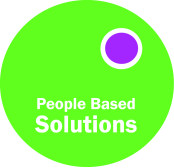 Recent research by academics at Warwick University and the IZA
Research Institute at the University of Bonn, Germany "Happiness and Productivity" soon to be published in the Journal of Labour Economics, shows that happiness makes
people more productive. The research
suggests that happiness can make people between 10 and 12% more productive. The
research also concludes that lower happiness is
systematically associated with lower productivity. This suggests a causal link
between well-being and performance.
Recent research by academics at Warwick University and the IZA
Research Institute at the University of Bonn, Germany "Happiness and Productivity" soon to be published in the Journal of Labour Economics, shows that happiness makes
people more productive. The research
suggests that happiness can make people between 10 and 12% more productive. The
research also concludes that lower happiness is
systematically associated with lower productivity. This suggests a causal link
between well-being and performance.
The researchers tested the proposition put forward in “HealthyPeople = Healthy Profits”, namely that ”Investment in employee wellbeing yields
healthy returns.”. The research is also influenced by a raft of previous studies, all of which suggest a positive relationship between employee productivity and “happiness”
and “job satisfaction”. The research is supportive
of the proposition that ‘happier’ workers are intrinsically more productive.
Understandably, from a peer reviewed academic publication, there
are caveats. A key one being. that although their work suggests that happier
workers are more productive, they were unable to conclude that employers should
dedicate more resources to making their employees happier. Although the study illustrated the existence
of a potentially important mechanism, there was no cost benefit analysis, and
no proof of a net benefit on an investment in employee happiness.
However, the results do have implications for employers, HR
specialists and management academics:
1.
We may need to pay more attention to emotional
well-being as a causal force in employee productivity.
2.
Better bridges may be required between currently
disparate scholarly disciplines such as economics and psychology
3.
If happiness increases workplace productivity, this
could have consequences for a firm’s HR policies
4.
If well-being boosts employee performance at
work, this raises the possibility, of “virtuous cycles” between employee
productivity and employee well-being.
On a practical level this research, when considered along
with research on employee engagement, suggests employees who like life at work,
as a result of being both emotionally
engaged and happy, will be more productive.
As such, it makes good business sense for an organisation to encourage
both happiness and emotional engagement amongst its employees. Here are just 3 practical steps an
organisation can take if it wants to make the workplace a happier and more
engaging environment:
1.
Create an
organisational climate that promotes happiness and employee wellbeing. Organisations that are oppressive, where
bullying and intimidation are standard management tools, where constant long
hours are needed to deliver the goals that have been set, and where individual
creativity is stifled are unlikely to deliver a competitive advantage.
2.
Select
wisely. Don’t just ask the question “can they do the job?” ask the question
“will they fit our culture?” An employee
who doesn’t share the organisation’s values, who’s attitudes and beliefs are not
in accord with the prevailing attitudes and beliefs of the organisation, is unlikely
to be either happy or emotionally engaged.
These unhappy, disengaged “square pegs in round holes” as well as being less productive, can develop in to
a toxic presence amongst their work team or department.
3.
Appoint emotionally
intelligent leaders. Ensure your
leaders have interpersonal savvy. Select people for leadership positions who
understand other people, who can adapt their behaviour to meet the needs of a
particular situation, and who can be persuasive as well as forceful.
